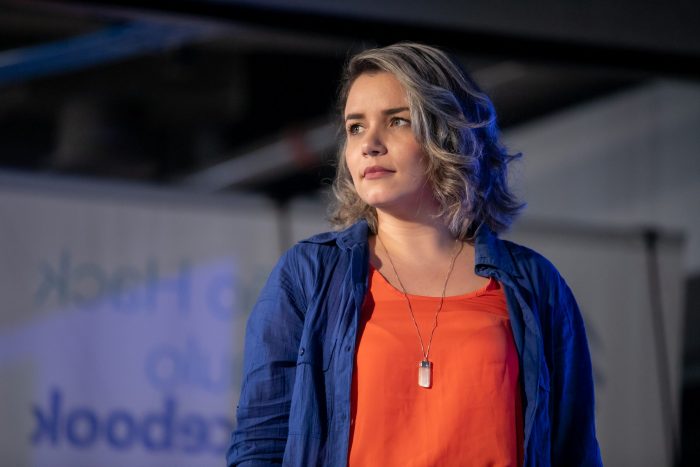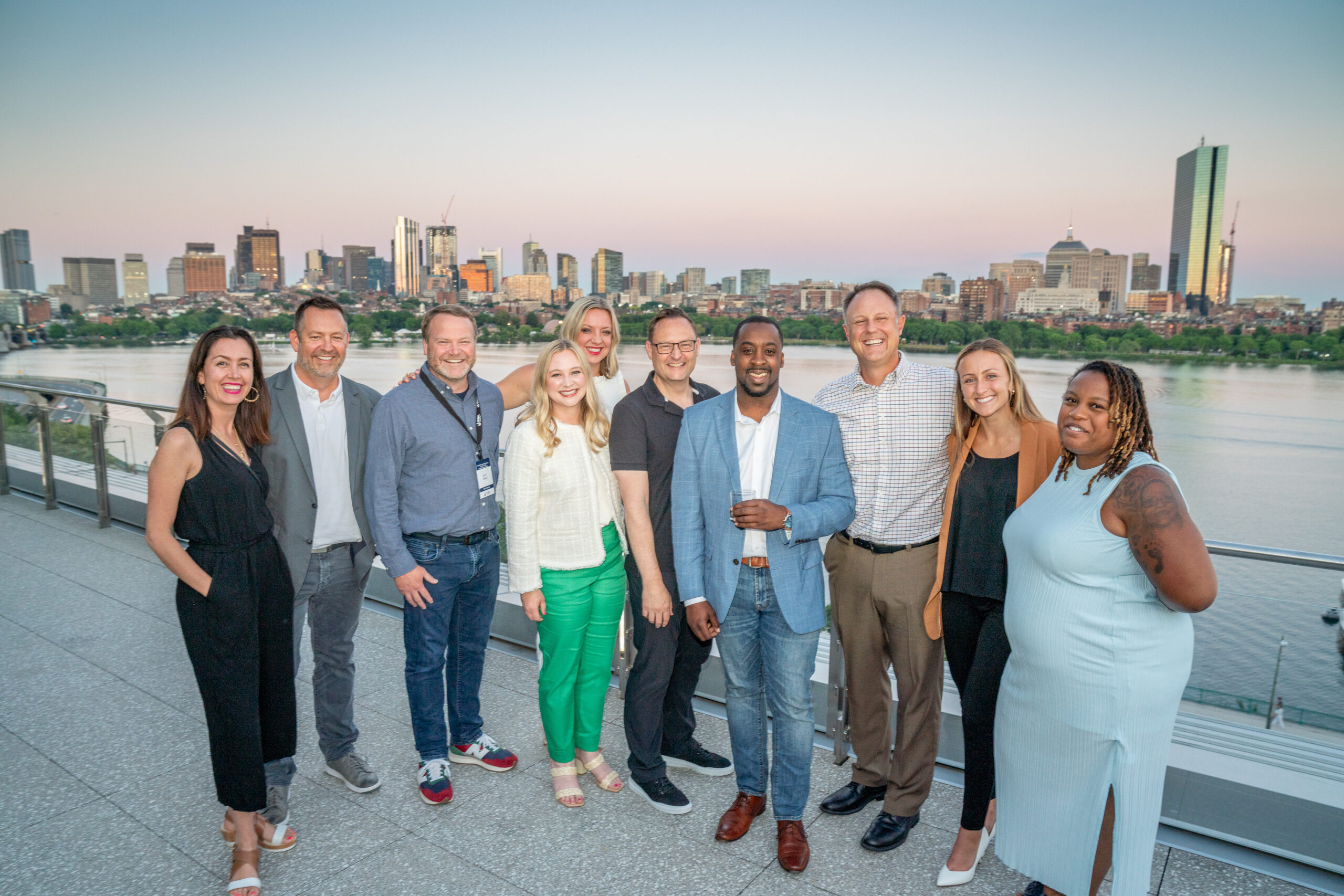Leave it to technology to solve problems not everyone has noticed yet.
Problems some people have gone out of their way not to notice.
Problems some people would have noticed if only the problem had been framed differently.
On that last point, consider this: a Winthrop University survey from December 2018 found that only 50% of white respondents in 11 Southern U.S. states said they believed in the existence of white privilege. But when the exact same question was posed in slightly different wording—do barriers exist for non-whites?—the number of whites who agreed with this reworded explanation of white privilege skyrocketed to 71%.
That business software could be used to address such blindspots and mental glitches might seem beyond the realm of tech. But at least one company is working on a solution to unconscious bias among recruiters and managers in the hiring process: Brazilian startup Jobecam.
“I work to value difference,” said Jobecam CEO and founder Cammila Yochabell, via video call from Brazil.
After eight years of working in HR and improvement processes, Yochabell realized she wanted to make hiring more fair and equitable. The idea for Jobecam hit her in 2016 when she was living in Australia and New Zealand to learn English. Suddenly, the Yochabell knew she wanted to get a job in Brazil. But with over 7,200 miles between her host and home countries, she’d have to rely on video interviews until she could find something.
Yochabell—intelligent, enthusiastic, energetic, polyglot and expressive, with a taste for brightly colored clothing—could sense potential trouble.
She worried that in the minds of possibly sexist or ageist recruiters, her youthful appearance and casually authoritative personality might belie her extensive experience and deep education, a professional journey that includes an MBA in Human Resource Management, those aforementioned eight years in HR, and multiple licenses and certifications.
Instead of wasting energy applying for dozens of jobs just to, in her words, have her complex human self reduced to a relay of packet-switched images and latent audio, Yochabell returned to Brazil and founded Jobecam.
“I wanted to improve the way a recruiter could analyze me,” she said.
Like most people, she wanted to be judged on her skills, abilities and experience, not on her looks or personality.
So she hired some developers to create software inspired by the international television show The Voice. The Voice uses blind auditions to avoid biasing judges for or against a candidate due to the person’s appearance or demeanor.
Available in three languages, the Jobecam software essentially allows for anonymized real-time interviews with recruiters and hiring managers. A person’s face is replaced with an avatar, their name is hidden, and their speech scrambled like a 1990s movie voice-changer, all flanged out and bitcrushed. Jobecam also translates the interviewee’s spoken words to text and includes no personally identifiable information.
“The trick is the image,” Yochabell said, referring to the software’s cartoon-like avatars that help eliminate possible hints, clues or dead giveaways about a person’s community, demographic or identity. These obfuscations help level the playing field for candidates that typically experience discrimination on the job hunt.
It’s not a perfect solution, Yochabell admitted, because in her view no perfect solution exists.
“Unconscious bias cannot be eliminated (all the way) because unconscious bias is a thing we carry with us when we are alive. It’s human. But we help recruiters and managers to reduce this unconscious bias. Because no matter if this person is a male, or a Black person, whatever, it’s no matter,” she said. “The only thing that matters to hire someone is the competence, the abilities and the professional background of this person, not the stereotypes.”
To ensure recruiters stick to evaluating candidates by competencies and abilities, not extraneous physical details or gut instinct, the Jobecam software only allows recruiters to see people behind the screen if they get approved for the next step.
“We are the first video-blind platform of the world,” Yochabell said.
Jobecam has received angel investment from multiple entities, including BRQ Digital Solutions and People + Strategy. Through a startup accelerator program, the company has also been supported by Oracle, Google, Microsoft and Facebook.
“Of course, we would like to spread this methodology around the world,” she said. “But nowadays we are focused on Brazil and looking for some opportunities abroad to give the opportunity for other countries and other candidates to apply this way.”
Yochabell added that Jobecam is seeking investments from around the world. The company is particularly interested in expanding to America. Interested VCs can contact Yochabell or Jobecam COO Thereza Bukow.
“My dream is to see Jobecam around the world, and to help companies promote our work to make a difference,” she said. Of course, money matters, but social impact is more important to (Jobecam). And we believe that we can do this. We can impact companies and give more diversity, inclusion and belonging for companies.”
Eric Swanson, a Happiness Engineer at Flywheel, said he appreciates the noble intent behind Jobecam’s mission. As an African-American software developer, he’s faced more than his share of bias on the job hunt. In part one of this series, SPN detailed Swanson’s struggle to find an entry-level job despite his stellar coding skills, strong portfolio and a veritable who’s-who of references from Omaha’s tech community. Then, he found work at Flywheel. The company gave Swanson the opportunity to further develop his skills in tandem with Flywheel’s own rapid growth.
And though he can’t comment definitively on the Jobecam bias reduction HR software without seeing its results, he offered tentative praise for the company’s efforts to offer a scalable product that could help reduce unconscious bias among recruiters around the world, were the Jobecam software to find widespread adoption.
“I think it’s awesome that they’re trying to do that. (Anti-bias hiring software) would be a great equalizer,” he said. “It’s definitely something welcome.”
Not everyone agrees with Swanson’s sunny outlook. Jobecam is, after all, trying to accomplish something whose ambition borders on audacious. It’s something Noni Williams, a Black woman, data scientist, and advanced math extraordinaire, has been thinking about a lot lately. Read her take tomorrow in the finale to our three-part look at unconscious bias in hiring, right here on SPN.
Did you miss part one of our three-part series investigating unconscious bias in hiring, and the possible role of technology in addressing the problem? You don’t have to travel back in time. Just click here.
Correction: a previous version of this article stated that Jobecam had received angel investment through Oracle, Google, Microsoft and Facebook. That is incorrect. Rather, those companies supported Jobecam through an accelerator program. Also, Cammila Yochabell is a native of Mossoró, Brazil, not São Paulo.




